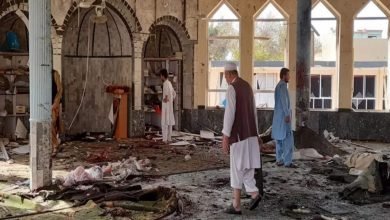84% of women journalists have lost their jobs in Taliban-ruled Afghanistan

Reporters Without Borders (RSF) and the Afghan Independent Journalists Association (AIJA) have said that four out of five women journalists have lost their jobs
A recent survey has shown that over 80% of women journalists have lost their jobs after the Taliban took control of Afghanistan.
Reporters Without Borders (RSF) and the Afghan Independent Journalists Association (AIJA) reveal a radical change in the Afghan media landscape since the Taliban took power.
231 media outlets closed
After the Taliban took over, almost 231 media outlets had to close down. Over 6,400 journalists have lost their jobs since August. According to the survey, four out of five female journalists are no longer working.
More than four out of every ten media outlets have closed and 60% of journalists and media employees have lost their jobs. Overall, 43% of the media space has frozen in just three months. More women compared to men have lost their jobs. One out of two men, comprising 54% of male journalists have lost their jobs. On the other hand, 84% of women journalists have lost their jobs.
Four months ago, most provinces in Afghanistan had around 10 privately-held media outlets. However, some provinces have no local media now. Afghan mountainous province of Parwan had 10 media houses, but only three are still functioning.
Heart, the third-largest city and its surrounding regions have 18 out of 51 media outlets functioning, a 65% drop. Kabul, the capital city, and its surroundings have lost over 51% of total media outlets. Only 72 are operating out of 142 media houses.
New media laws are creating pressure
The Taliban government has imposed stringent rules for media and media personalities. The media now has to comply with the 11 journalism rules.
The rules are open means to censorship and persecution, depriving journalists of their independence and forcing them to tell information and culture ministry officials about their coverage. According to the new rules, they should tell them what and how they are covering.
To avoid these, the existing media outlets have replaced their content with religious content. It has also caused a lot of local radio stations to cease broadcasting.
“There is an urgent need to rein in the spiral leading inevitably to the disappearance of Afghan media and to ensure that respect for press freedom is a priority,” said Reza Moini, the head of RSF’s Iran-Afghanistan desk.
Additionally, the advertisement revenue of these media houses is adversely affected.







